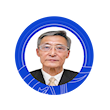Good-Natured Korean People; Persons with Disabilities Are also Masters of Society
The international day for persons with disabilities is aimed at defending their rights and encouraging them to participate in all aspects of social life.
-

Persons with disabilities are also masters of society
December 3 marks the International Day of Persons with Disabilities.
In October 1992, the 47th Session of the UN General Assembly designated this day with the purpose of raising the social awareness of this topic and promoting an understanding of disability issues, all for the sake of defending their rights and encouraging them to participate in all aspects of social life including politics, economy, and culture.
On this occasion, we will look into the situation of persons with disabilities in the Democratic People’s Republic of Korea.
The DPRK respects the personality of persons with disabilities and ensures their socio-political rights and interests are mandated by law.
The Labor Law for Factory and Office Workers in North Korea, promulgated in June 1946 after the liberation of the country from Japan's military occupation, advanced measures for providing living conditions for persons disabled during work or suffering from a vocational disease; this was the beginning of protection of persons with disabilities in this country.
Later, the DPRK Law on the Protection of Persons with Disabilities was promulgated.
This law, which regulates the provisions on the protection of persons with disabilities, their rehabilitation, education, cultural life, labor, and so on, contains articles on protecting their rights and interests in all sectors of social life and providing them with more stable and convenient living environments and conditions.
The DPRK Cabinet issued a decision about the Regulations for the Implementation of the Law on the Protection of Persons with Disabilities.
Modern prosthetic appliance factories have been built in several parts of the country, and a well-regulated national rehabilitation system for persons with disabilities is in place.
The Korean Association for Supporting Persons with Disabilities, founded in 1999, was reorganized in 2005 as the Central Committee of the Korean Federation for the Protection of the Disabled in order to provide better living conditions and environments for persons with disabilities.
The Central Committee of the KFPD carries on the work of improving the contents of vocational education in special schools for persons with disabilities and, at the same time, leads the vocational schools to teach diversified knowledge of various sectors to the graduates so that they could lead a diversified working life after graduation. In order to bring hope to persons with disabilities into full bloom, special schools including Taedong Blind School and Songchon Deaf and Dumb School are putting their artistic activities on a regular footing. Similarly, the Korean Art Association of the Disabled is making art a specialized activity for persons with disabilities. The Korean Sports Association of the Disabled is increasing the number of sports events for persons with disabilities, including table tennis, swimming, shooting, and archery, and is paying great efforts to raise promising sportspeople among them, armed with the fact that great successes have been achieved in international sports games of the disabled.
The audience who saw the international tour performance of the Pyongyang exchange group said that it was unbelievable: They played musical instruments and danced as well as professional artists, and this only reflects the realities of Korea where a protection policy for persons with disabilities is fully ensured.
Persons with disabilities in the DPRK are proud of the fact that they are also masters of society, free from all “care” in social life. They believe that they can, and should, also devote themselves to the development of society, which expects them to do so and provides them with every necessary condition.
“Mother Hero”
There is a woman hero called Pak Un Jong, who lives in Kangdong County, Pyongyang. Three of her ten children are serving in the Korean People’s Army.
In the Democratic People’s Republic of Korea, where women are encouraged to give birth and raise many children, women enjoy special benefits.
Mrs. Pak has the right to receive preferential treatment at any hospital, a right given to all prolific mothers; the state also takes good care of her family in their living.
Many people looked after her when she was hospitalized in the Pyongyang Maternity Hospital; they still do so even after she left the hospital.
In September this year, she was awarded the title of Labor Hero of the DPRK. In Korea, such women are called “Mother Heroes".

 Kim Hoon
Kim Hoon
 4 Min Read
4 Min Read











